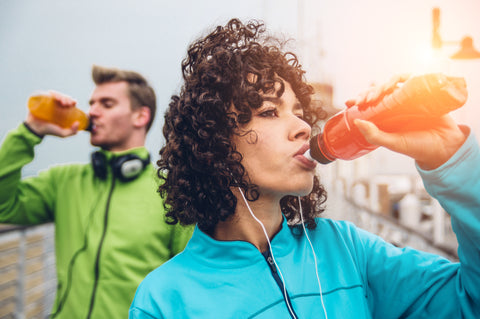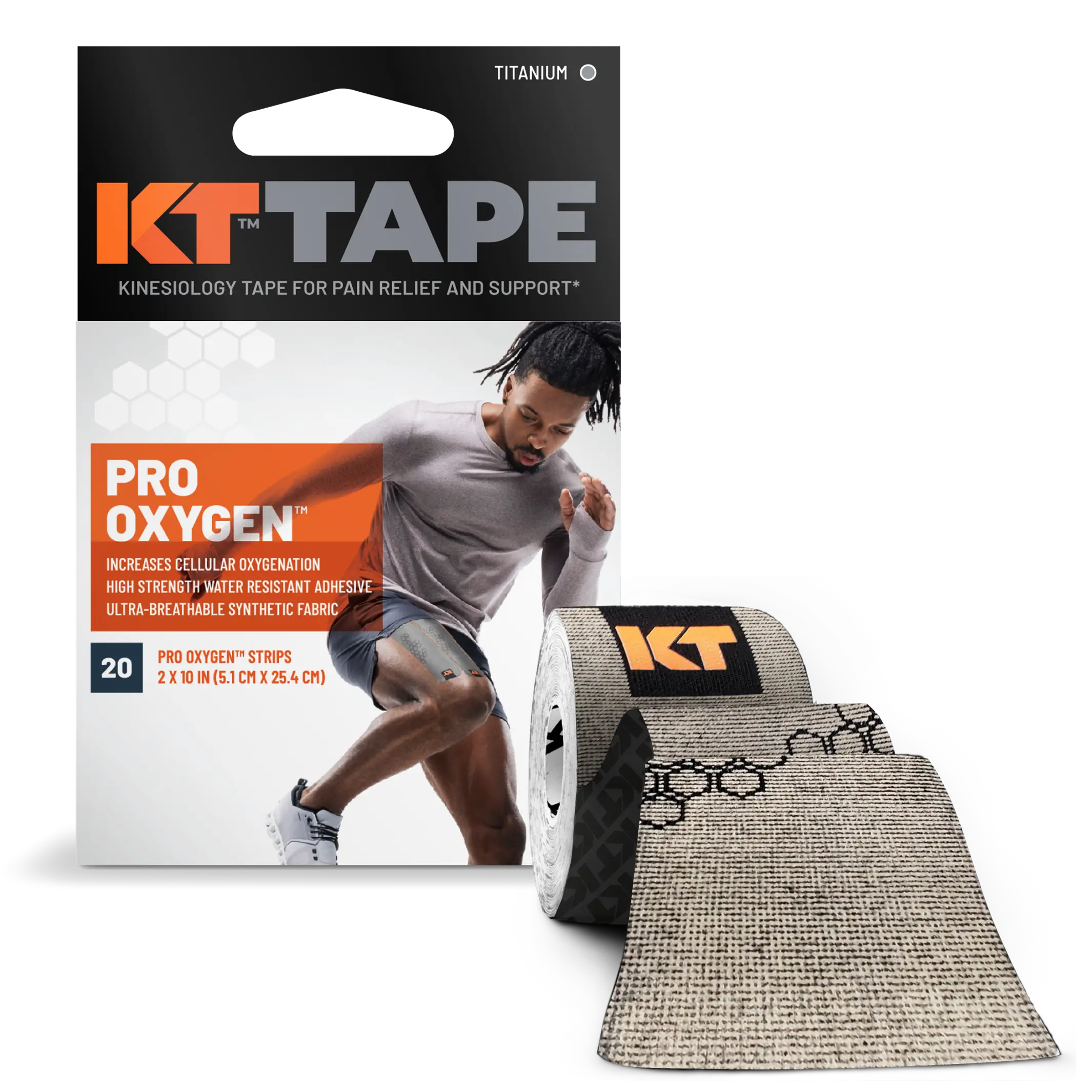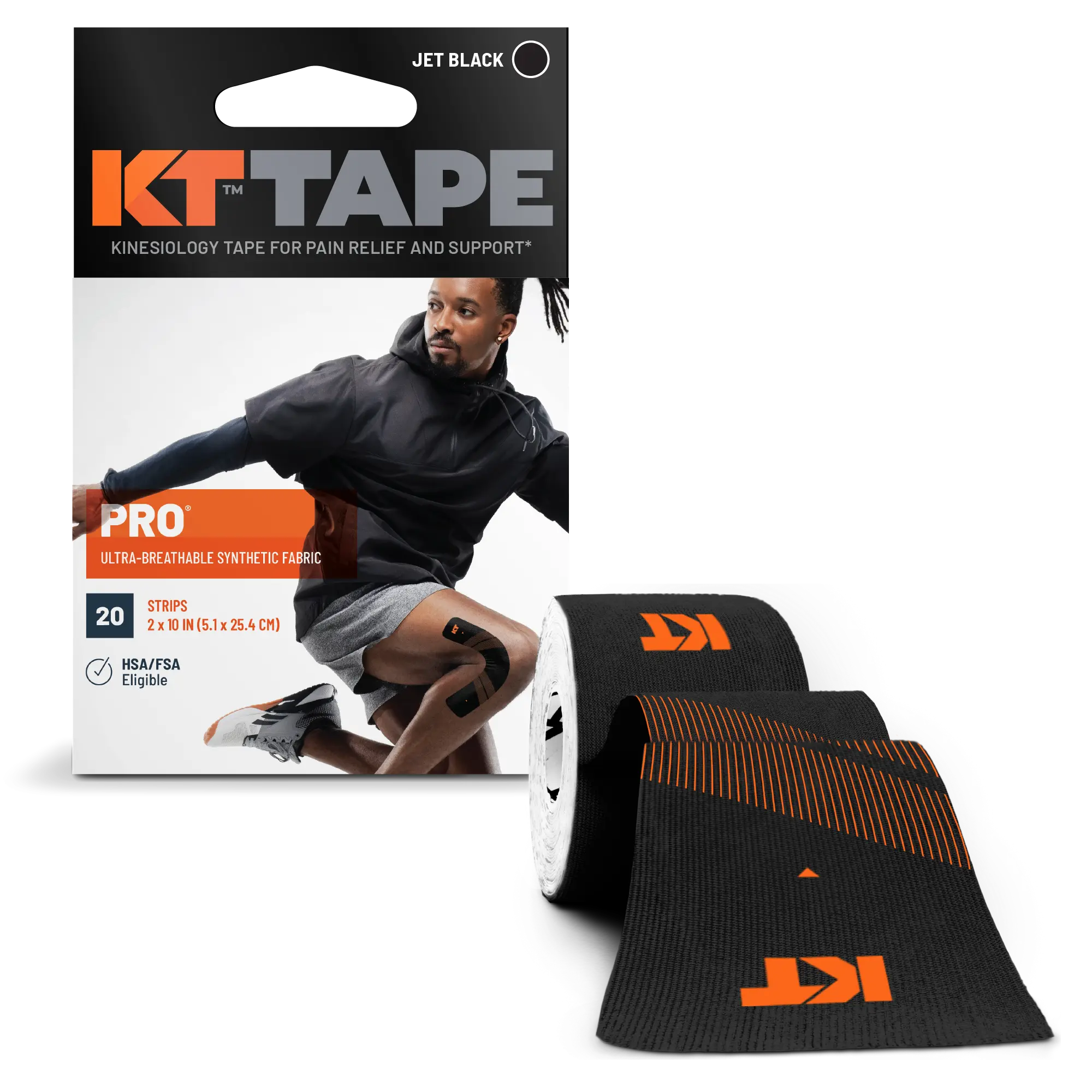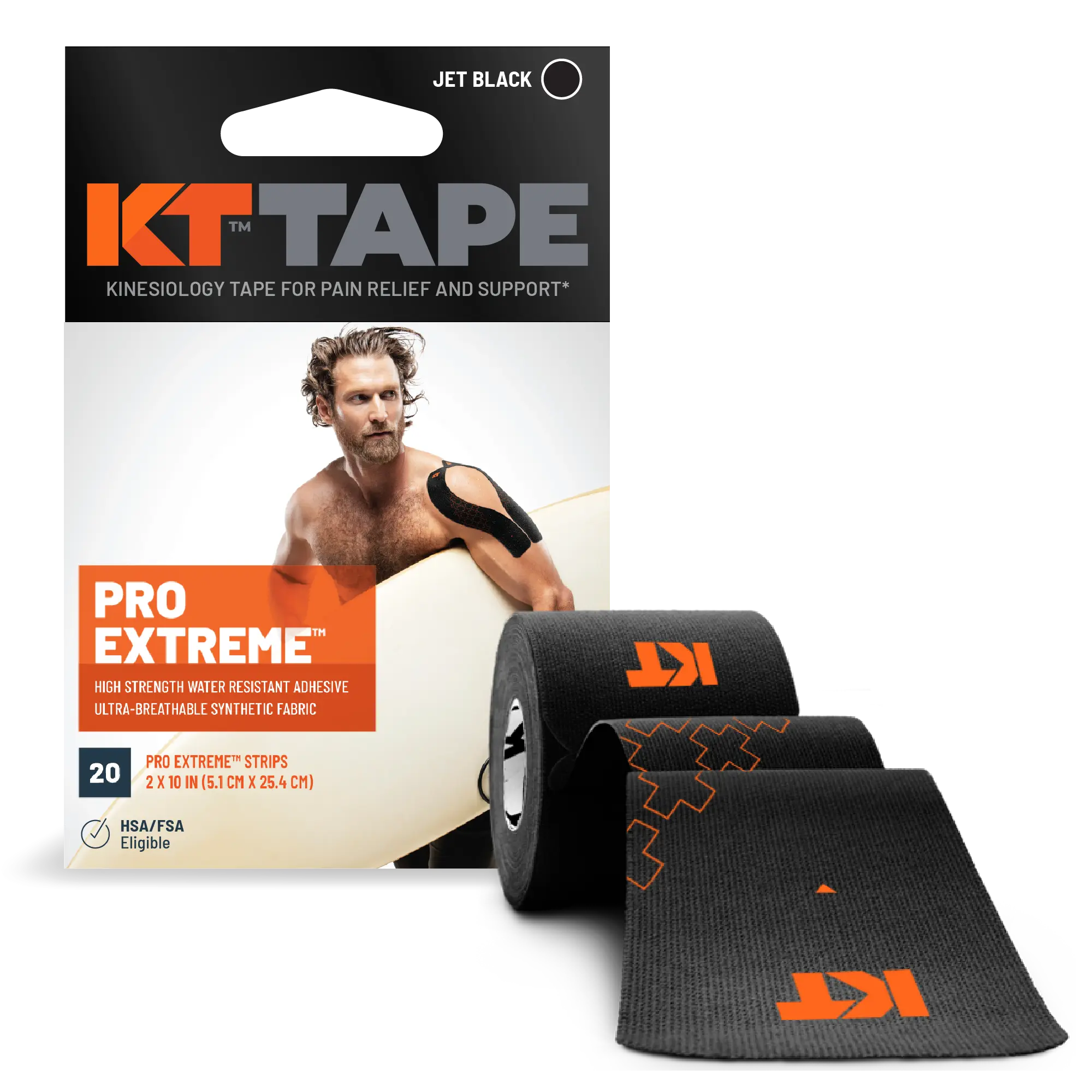As the KT Tape team travels around the country taping up thousands of runners and triathletes, we have seen all levels of dehydration which can lead to exhaustion. Hydrating is important while running, as your body sweats and fatigues it naturally needs to be replenished. Yet, many folks are nervous to chug water while running to avoid side-ache or are unclear on what the appropriate amount of fluid is to avoid pitfalls and dehydration leading to fatigue and decreased performance.
Previous advice leaned on the side that regardless of possible side-aches you are supposed to drink as much water as possible to stave off dehydration. Matt Fitzgerald writes,Running 101: Hydration During Running, on the Competitor Running website to break down the right and wrong way to hydrate while running.
Runners almost never experience dehydration levels sufficient to cause major health consequences. But normal levels of dehydration will make you feel uncomfortable and cause you to slow down.It was once believed that athletes were to drink as much as possible during exercise to completely offset dehydration. It is known nowadays that it is possible to drink TOO much. Forcing yourself to drink large amounts of water may lead to gastrointestinal distress and stomach aches. Research has shown that drinking to completely offset sweating or dehydration offers no advantage to performance.
New exercise hydration advice leans on your ability to drink according to thirst. As long as an adequate supply of liquid is accessible during long runs you will "naturally drink enough to optimize your performance if you drink as often and as much as your thirst dictates," says Fitzgerald. Fitzgerald suggests that plain water is sufficient for more runs, but says, "sports drinks provide an extra energy source for your working muscles in the form of carbohydrates. Research has shown that sports drinks enhance performance significantly more than plain water in high-intensity and long-duration runs and races."
He continues to explain that most runs aren't supposed to test performance limits so it isn't necessary to use a sports drink every time you lace up. Save the sports drinks for faster and longer workouts.
Good luck runners as you head into Summer months with runs in the sun and hot pavement! Be careful and stay hydrated---the right way!










